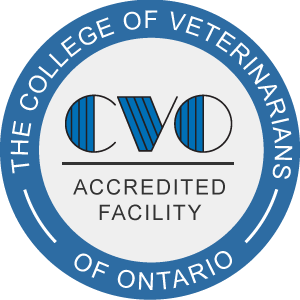Ketoconazole - Oral
Why has my veterinarian prescribed this medicine?
Your pet has been prescribed ketoconazole, an anti-fungal medication.
Adverse effects:
Gastrointestinal signs of anorexia, vomiting, and/or diarrhea are the most common adverse effects seen.
Hepatic toxicity consisting of cholangiohepatitis and increased liver enzymes has been reported with ketoconazole, and may be either idiosyncratic in nature or a dose-related phenomenon. Cats may be more prone to developing hepatotoxicity than dogs.
If you notice any severe vomiting, lack of appetite, yellowing of gums or whites of the eyes, discontinue the medication and contact your veterinarian immediately.
Thrombocytopenia has also been reported with ketoconazole therapy, but is rarely encountered.
A reversible lightening of haircoat may also occur in patients treated with ketoconazole.
Ketoconazole has a transient dose-related suppressant effect on gonadal and adrenal steroid synthesis.
Storage and handling:
Ketoconazole tablets should be stored at room temperature in well-closed containers.
Pregnant women should use caution when handling.
Please see the prescription label for dosing information and means of administration.
Always follow the label instructions. Never administer any medication unless prescribed by a veterinarian. Keep out of reach of children.
Plumb, D. C. (2015). Plumb’s Veterinary Drug Handbook, 8th edition. accessed via Veterinary Information Network; vin.com
Extra-label drug use
Extra-label drug use, also referred to as “off-label use” refers to the use of a drug approved by Health Canada in an animal in a manner not in accordance with the label or package insert with respect to species, indication, dose, duration, and route of administration.
A drug used in an extra-label manner does not have proven safety or efficacy characteristic based on its intended use.
The availability of approved veterinary drugs for the species being treated is always considered before prescribing medication in an extra-label manner.
With the limited approved veterinary drugs, extra-label drug use often involves the use medications made for other species (including humans) in our pets.
© Copyright 2025 LifeLearn Inc. Used and/or modified with permission under license. This content written by LifeLearn Animal Health (LifeLearn Inc.) is licensed to this practice for the personal use of our clients. Any copying, printing or further distribution is prohibited without the express written consent of LifeLearn. This content does not contain all available information for any referenced medications and has not been reviewed by the FDA Center for Veterinary Medicine, or Health Canada Veterinary Drugs Directorate. This content may help answer commonly asked questions, but is not a substitute for medical advice, or a proper consultation and/or clinical examination of your pet by a veterinarian. Please contact your veterinarian if you have any questions or concerns about your pet’s health. Last updated on Nov 24, 2021.


